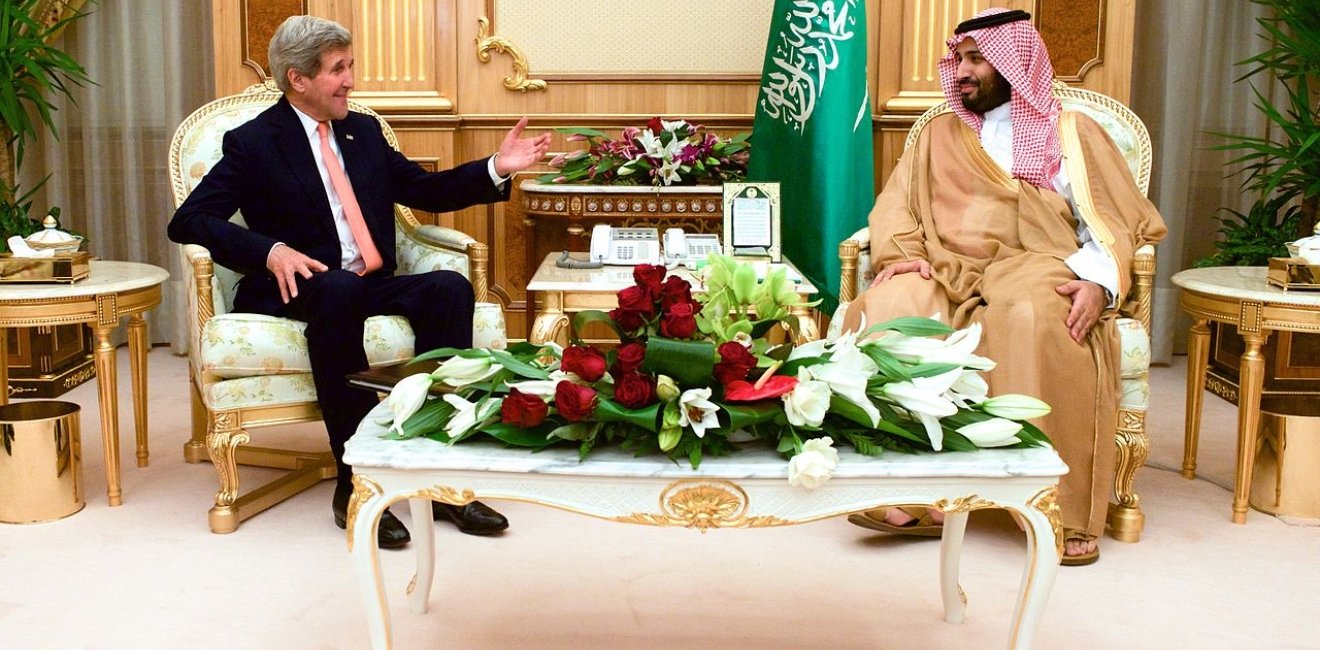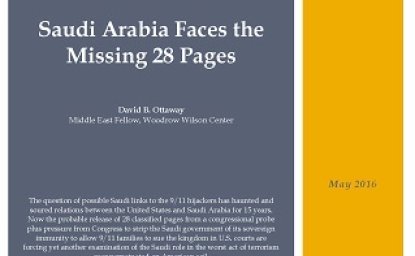Mohammed bin Salman, Saudi Arabia’s iconoclast deputy crown prince, makes his Washington debut this week amid a new low point in U.S.-Saudi relations. At age 30, and after just 14 months on the job, the upstart prince is already the most influential policymaker in the ruling House of Saud, while remaining somewhat of an enigma in the American capital. He has been busy engineering a new Saudi economy no longer dependent on oil for its lifeblood, and now he has to deal with shaping a new foreign policy no longer dependent on the United States for its military muscle.
Mohammed is the leading young hawk of a royal family determined to show that the Saudi kingdom is not only a religious and oil powerhouse, but also a military one. The Obama administration has been encouraging the Saudis to rely more on themselves for their security, but has discovered in the process that Riyadh has conflicting objectives and priorities from Washington. This has become most apparent in their differing attitudes toward Iran. The Saudis -- who view Iran as their main enemy in the region -- seek to isolate Tehran, while the Obama White House has encouraged Riyadh to “share the neighborhood.”
But the primary bone of contention in Mohammed’s talks here with senior U.S. officials will no doubt be Syria. The Saudis are chaffing to escalate the war to force President Bashar Assad from power. They are pushing the White House to embrace a Plan B calling for such an escalation, including the controversial inclusion of anti-aircraft missiles for anti-Assad rebel groups.
Syria is emblematic of a larger malaise in the fading U.S.-Saudi special relationship dating back to the end of World War II. Its long-enduring keystone -- Saudi oil for the United States in return for American protection of the ruling House of Saud -- no longer holds.
So far, President Obama has shown no interest in Plan B, which even his secretary of state, John Kerry, is reported to favor as a means of gaining badly needed leverage over the Assad government. In a nationwide speech delivered last week, Assad made clear he intended to stay on indefinitely and vowed to retake “every inch” of Syrian territory now controlled by myriad Islamic and secular rebel groups.
Syria is emblematic of a larger malaise in the fading U.S.-Saudi special relationship dating back to the end of World War II. Its long-enduring keystone -- Saudi oil for the United States in return for American protection of the ruling House of Saud -- no longer holds. Saudi oil has ceased being crucial for the United States, and Saudi Arabia is becoming increasingly less dependent on Washington for its security. The two are still bound by numerous military and security ties, but their goals and objectives in the region are often at odds now.
Differences between the two countries have recently become more pronounced. The two do not see eye to eye on the goals of war in Syria and Yemen and above all on whether to seek accommodation with Iran. Saudi oil policy, long responsive to U.S. interests, is now partly aimed at putting competing American shale oil producers out of business. And Congress is pressing legislation to strip the Saudi government of its sovereign immunity in order to allow the families of 9/11 victims the ability to sue the kingdom in U.S. courts for alleged Saudi support of the hijackers.
Into this unsettled relationship now comes Mohammed bin Salman, too young and untested for American policymakers to judge his mettle. Thanks to his father, King Salman, Mohammed is challenging the usual criteria for kingship by projecting himself to the forefront of contenders before proving his skills in governance. He carries multiple titles, from deputy crown prince and defense minister to head of the new Council of Economic and Development Affairs that is pioneering a sweeping makeover of the stultified Saudi government.
The council recently published a 112-page National Transformation Program outlining detailed reforms and progress indicators for every ministry and government agency to fulfill in order to meet the highly ambitious goals of the Vision 2030 reform plan. Its main objective is to end the kingdom’s dependence on oil largely by establishing the world’s largest public investment fund to produce billions in earnings with the initial target of tripling non-oil income to $141 billion in four years.
In many ways, Mohammed represents a radical break from his father’s generation of tradition-bound elderly princes who have ruled the kingdom in secrecy since its founding in 1932. He clearly has no regard for age or seniority. He has also shown no qualms about promoting himself in the foreign media, previously a royal taboo. And he seems unafraid to challenge the royal status quo by competing with his far more experienced elder cousin, Crown Prince Mohammed bin Nayef, to become his father’s immediate successor.
For this to happen, King Salman, who already deposed Crown Prince Muqrin last year, would have to remove Mohammed bin Nayef, the powerful and proven interior minister who has dealt with security issues for 17 years. He is credited with keeping the ruling House of Saud safe from the terrorist machinations first of al-Qaeda and now the Islamic State as well.
Bin Nayef, who turns 57 in August, is chairman of the other key policymaking body set up last year by King Salman, the Council for Security and Political Affairs. He has long been viewed as Washington’s favorite Saudi prince and seemed safely on track to become the next king. But Mohammed bin Salman is now challenging that assumption, forcing U.S. officials to take his measures more seriously and probe his motives and objectives.
Mohammed bin Salman is leading a faction of hawks within the royal family that is determined to vastly expand Saudi military power in order to compete more aggressively with Iran, which is now emerging from international isolation after agreeing to halt its military nuclear program. The Saudis have launched two military coalitions in the past 15 months, one consisting of nine Sunni Arab states fighting in Yemen against Iran-backed Houthi rebels. The formal objective of the other, embracing 34 Sunni Muslim countries, is to combat terrorism, although it is widely viewed as another stratagem to counter Shiite Iran. At the same time, Saudi Arabia is participating in a third U.S.-led coalition battling the Islamic State.
But the primary objectives of the two countries are not the same. For the Obama administration, the lodestar of its Middle East policy is currently to “degrade and ultimately destroy” ISIS, extricate the United States from the region’s multiple wars and sectarian conflicts, and promote a Saudi-Iranian detente. For Saudi Arabia, the overriding goals are to roll back Shiite Iranian influence in the Sunni Arab world, overthrow Iran’s main ally there, Syrian President Assad, and keep the United States fully engaged in the region.
The opinions expressed here are solely those of the author.
This article was originally published on Real Clear World.






